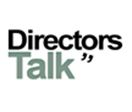The Times
Crude hits six-year low as stocks of U.S. oil surge: Global oil prices were hammered to their lowest level in more than six years amid mounting evidence of a U.S. supply glut and fears of a slowdown in China and other energy-hungry emerging economies.
Families face surprise rise in energy bills: Hundreds of thousands of British families are facing the threat of an unexpected increase to their energy bills next month, despite steep recent falls in the wholesale price of energy.
GVC may up ante to £1.1 billion – is the party over at Bwin?: GVC Holdings is prepared to increase its offer for Bwin.party to at least 130p a share — or nearly £1.1 billion — in a final push to secure a takeover of its online gambling rival.
After three gloomy years, savers see light at end of the tunnel: Hard-pressed savers are finally enjoying better returns on their deposits after three years of rock-bottom rates thanks to government intervention aimed at boosting economic growth, according to Moneyfacts.
Self-sufficient smaller firms shunning the big lenders: Small businesses are turning their backs on external finance, preferring self-sufficiency to bank-funded growth plans or crowdfunding, a study reveals.
Citi subsidiary hit by three settlements in as many days: A subsidiary of Citigroup has agreed to three regulatory settlements for misconduct in three days this week, including one to settle accusations of fee overcharging and another relating to compliance and surveillance failures.
Gem’s stones keep shining: Gem Diamonds said that prices for its stones were holding up, despite weakness in the wider diamond market.
Householders expect rate rise in next six months: Almost half of households are preparing themselves for an interest rate rise during the next six months, a survey has found.
Cheap countryside homes to be built for first-time buyers: Young first-time buyers will have the chance to buy cheap homes in the villages where they live or work under plans to allow family homes to be built on farmland and Greenfield sites.
The Independent
Zero-hours contracts make up one in four offers to jobless: Nearly one in four jobs being offered to the unemployed are on zero-hours contracts which give no guarantee of work, according to a leading recruitment website.
Greece debt crisis: German Chancellor Angela Merkel suffers biggest revolt yet, but bailout passes: The German Chancellor Angela Merkel has suffered her biggest parliamentary rebellion yet, when 63 members of her Christian conservative bloc voted against Greece’s new €86 billion (£61 billion) bailout.
Glencore shares plummet to new low after firm reveals $676 million loss: The global commodities rout sent trading and mining giant Glencore plunging to a $676 million (£431 million) first-half loss, sending its shares to a new record low and extending its Chief Executive Ivan Glasenberg’s paper losses this year to more than £1.3 billion.
Uber links with Tata to expand in India: The Indian conglomerate Tata is investing up to $100 million (£64 million) in Uber as part of a new “strategic partnership” with the taxi-hailing app, just as the U.S.-based tech group is looking to expand its operations on the subcontinent.
Financial Times
Imperial Tobacco held back by falling sales in Iraq: Imperial Tobacco’s otherwise good results in the past three quarters were held back by the deteriorating political and security situation in Iraq.
Copper miner Kaz leaps 6% after Kazakh currency devaluation: Kaz Minerals, the Kazakhstan-based copper miner, jumped to the top of the mid-cap index on Wednesday thanks to a combination of events led by a near 5% devaluation in the Kazakh currency.
Study claims China emissions much lower than expected: China’s carbon emissions may be significantly lower than assumed, a study has shown, in a surprising conclusion ahead of climate change talks in Paris in December.
Raiffeisen shares bolstered 8% by success of capital ratios drive: Shares in Raiffeisen Bank International rose 7% on Wednesday after the Austrian lender that has operations across emerging Europe and Russia boosted its capital ratios and reported a smaller-than-expected drop in first-half profits.
Qantas turnround gains altitude with swing to profit: Qantas Airways’ recovery gained altitude as the airline soared back into the black and outlined bullish plans to buy new aircraft, return cash to its shareholders and reduce debt.
Audi to unveil 310-mile electric SUV to rival Tesla Model X: Audi is to unveil an electric car to rival Tesla’s forthcoming Model X that the German marque says is capable of travelling at least 310 miles on battery power alone.
Volvo upbeat as first-half profits rise 71%: Volvo is forecasting a big profit rise this year as a new sport utility vehicle and rebounding sales in Europe and the U.S. offset a slowdown in China, the Swedish carmaker’s biggest market.
Russia sends food inspectors into Auchan stores: Russian authorities have launched a probe into French hypermarket chain Auchan, making it the latest western multinational to fall foul of Moscow.
Didi Kuaidi joins $350 million fundraising in Uber rival GrabTaxi: Didi Kuaidi, China’s largest online car hailing company, announced its first foreign investment on Wednesday, buying into Malaysia-based GrabTaxi in a move analysts say is aimed at challenging U.S. rival, Uber.
SoftBank President Nikesh Arora makes Y60 billion ‘personal bet’: Nikesh Arora, President of SoftBank, has said he will buy Y60 billion ($483 million) worth of shares in the Japanese telecoms and internet group, in a sign of his commitment to the company as the handpicked successor to billionaire Masayoshi Son.
Lex:
Admiral: rainy day savings: Admiral, the U.K. auto insurer, like most, provides for heavy weather. It surprised the market on Wednesday with some sunshine. It clawed back loss reserves from previous years, beating expectations for profits. Customer numbers were beaten, too. The shares rallied 5%. In its favour, Admiral has a low cost base. This is measured by comparing insurance claim losses and expenses to the premiums received. This “combined ratio” has fallen to a very low 73% at Admiral, far below UBS’s estimate for the U.K. industry of 105%. A reading above 100 denotes underwriting losses. While the insurer flattered this ratio with reserve releases, it still shows the company is making strong profits in an intensely competitive market. To stay ahead, Admiral also earns revenue by selling services — such as legal cover — alongside insurance. Such extras equate to 39% of the profit from the U.K. auto insurance division. Rivals, such as esure, have similar business models, so the extras could diminish in importance.
Tech IPOs: Zulily, too late: Is this how the tech bubble ends? Not with a bang, but with a TV shopping channel founded in 1986 buying an online retailer that survived for less than two years as a public company? That was the fate of Zulily, which offers “flash sales” of clothes, and is about to go through its own flash sale to QVC (Liberty Interactive’s home shopping subsidiary) for $18.75 a share. This sort of underperformance by new tech offerings is common. Since Zulily’s float there have been 60 initial public offerings of U.S. tech companies worth more than $100 million, according to Dealogic data. Of these, 24 are trading below their offer price, including flashy debutants such as Lending Club, the marketplace lender. Another category of recent IPOs is up, but by an underwhelming amount. This group includes Box, the online storage company, which has risen 3% in eight months, and Twitter, the social media company, whose 9% rise in two years compares with an 18% rise in the S&P 500. Companies have different ways to manufacture secondary liquidity for investors and employees. Some might find an exit via acquisition like Zulily or Sungard, which was headed for an IPO before it was bought last week. But poor public showing of the newly listed is not something that private companies on the path to IPO, such as First Data or Square or those such as Uber widely believed to be heading that way before long, can shrug off forever.
Raiffeisen and Erste: resilient Austrians: Few would probably pick Raiffeisen Bank International or Erste Group Bank, two lenders that have sallied forth to tough it out in central and Eastern Europe — with less than Terminator-like outcomes. Given uneven results abroad, few expected the resilience displayed by Raiffeisen in its second-quarter results on Wednesday — despite exposure to Russia and last year’s loss. The Russian cheer yielded a near-10% share price pop. Raiffeisen suffered strains. Net interest income fell, but currency swings slowed the decline in fee income. Trading revenue rose on Ukrainian gyrations. It is as well that both banks have a grip on costs. At Raiffeisen they fell 9%, mainly because of lower staff expenses after it axed bonuses for 2014. Its cost-to-income ratio of 53% is far from shabby in the circumstances. But while Raiffeisen’s bad loan charge climbed 16% from a year ago — mostly on Ukrainian exposure — asset quality at Erste was better than expected. Neither is in the clear yet. As a proportion of total loans, Raiffeisen’s bad loan ratio is 12%; Erste’s is also elevated, at 8. Both need to rub healing balm into their lending scars. Its mutual parent cannot back a cash call, so Raiffeisen must shrink the risk-weighted asset denominator of the ratio by more than a fifth. A pity, then, that the capital-boosting sale of its Polish operation has stalled — hence self-help moves such as loan securitisation.
Lombard:
Grief encounter: One assumes Avid Life’s London float, never more than a distant possibility, is definitively off. Hackers appear to have posted online the email addresses of 39 million users of Ashley Madison, a website run by the Canadian company, which facilitates extramarital affairs. The closest Lombard ever gets to a walk on the wild side is going upstairs for something, then forgetting what it was. So it would be tempting to join the chippily sanctimonious chorus of “it couldn’t happen to a nicer bunch of people (and their naughty website)”. But the reasons for affairs are multifarious and some are understandable. The narrow business point is that Avid Life was unlikely to ever join the main market at a valuation of $1 billion or any other sum. A company capitalising on hookups, many of them dishonest, is philosophically unappealing to mainstream investors, who require promises to be kept. The wider consumer point hardly needs making: only entrust the internet with personal details you’re happy for your partner, employer, or worst enemy to see.
Not a very super tax: George Osborne should ignore a campaign to exclude building societies from paying 8% supertax. He has a duty to support equal opportunities. Honest provincial lenders have just as much right as big banks to pay a stupid, distortive tax. Both the levy and the supertax are dumb. They apply only to financial institutions, on the judgmental and inaccurate basis that they caused the crisis. Abolishing the levy and tweaking corporation tax upwards would skew capital allocation less, while having the useful side effect of irritating the CBI. If Ozzie exempts building societies, he ought to give the same break to challenger banks and perhaps then big banks that needed no bailouts. So forget it. The Chancellor should, however, remove or offset hefty capital surcharges imposed on mortgage lending by challenger banks. They are small enough to fail. Bless.
The Daily Telegraph
Dutch lambast Greece for creating ‘complete chaos’ as Germans back third bail-out: German MPs voted to back a third bail-out for Greece on Wednesday as Dutch prime Minister Mark Rutte fought back a no confidence vote over his decision to support the €86 billion rescue plan.
China’s stock market swings as investors fear Beijing stimulus is over: China’s stock markets swung wildly on Wednesday as the authorities battled to restore investor confidence.
Sir Howard Davies blasts Gatwick Boss: Sir Howard Davies has shot down the Boss of Gatwick, blasting a campaign to reverse the recommendation to expand Heathrow as doing “him and his company no credit”.
U.S. government lowers oil price forecast on Iran nuclear deal: American oil prices are expected to average less than $50 per barrel throughout 2015 after the U.S. government’s official watchdog lowered its forecast for the next two years.
Bank of England probes insurers’ cyber defences: Britain’s insurance firms are under pressure to improve their defences against cyber-attacks, as the Bank of England conducts a survey to check up on progress in the sector.
Admiral defies the gloom in car insurance: The car insurance group Admiral has shrugged off gloomy forecasts of costly claims inflation to post better-than-expected profits for the first half of the year.
The City’s massive size is a blessing, not a curse, say academics: Britain’s banks and finance firms performed surprisingly well in the credit crunch and its aftermath because the industry is enormous, with good links to countries all around the world, according to analysis from leading academics.
Profits fall at FTSE newcomer Hikma after decline in generics business: A decline in revenue from generics hit profits at Hikma, which joined the FTSE 100 this year.
The Questor Column:
Wood Group still a sell as profits fall: Oil services company Wood Group has moved quickly to protect its profits from the drastic slump in oil prices by cutting about 5,000 staff – slightly more than 10% of its workforce. Management are confident they can hit targets for the full year and maintain dividend payments but Questor is not so sure and retains a sell rating. The Aberdeen-based company, which provides the plumbing that keeps the oil and gas industry flowing, said that pretax profits had fallen more than 30% to $160.6 million (£102.6 million) in the six months to the end of June, from $233.3 million a year earlier. Revenue in the first-half was down $567 million to $2.66 billion compared with the same period last year. Bob Keiller, Chief Executive, said that conditions in the oil and gas market remain “very challenging”. Mr Keiller said that during the first half Wood Group had cut about $40 million from its costs and was on target to make savings of $80 million by the year end. The FTSE 250-listed company is split into three divisions. Its engineering division, which provides services for deepwater platforms, subsea pipelines and production support and enhancement for mature oilfields, contributes about 37% of group profits. Market consensus is for full-year profits of $352 million to the end of December, from $475 million last year. Questor is concerned that with the oil price still falling, that target may come under pressure. We warned investors to sell the shares at 660p in February as the oil price tumbled and reiterated that advice at 674p in June. Wood Group at 581.5p+2p. Questor says “Sell”.
The Guardian
Greece prepares to receive first funds after Germans back bailout: Greece will receive the first batch of funds under its new bailout programme after the German parliament voted to support the deal, despite widespread misgivings about whether Athens will manage to implement reforms in return for the money.
FTSE 100 index closes at lowest level in seven months: The FTSE 100 index has slipped to its lowest level since January as global investors reacted to concerns that a slowdown in China will undermine demand for oil and industrial metals in the world’s second largest economy.
Emerging markets’ shine dims as capital flight nudges $1 trillion in a year: Figures showing that emerging markets have suffered a near-$1 trillion (£640 billion) outflow of funds over the last year give another indication that countries billed as the stars of the post-crash economy are now waning..
Sky-high London rents prompt calls for new controls on landlords: London has become one of the most expensive cities in the world to rent a home, prompting politicians to call for New York-style controls on landlords.
Morrisons faces multimillion-pound bill to offload struggling local stores: Morrisons is facing a bill worth tens of millions of pounds to offload its struggling convenience store business. Britain’s fourth largest food retailer is in talks to sell its 150 M Local stores to the investment firm Greybull Capital.
Daily Mail
U.S. interest rate hike looming despite share turmoil on financial markets around the world: The Federal Reserve warned that interest rate rises in the United States are ‘approaching’ despite mounting turmoil on financial markets around the world.
Co-op set to abandon efforts to claw back £31,000 severance payment handed to disgraced Paul Flowers: The Co-operative Group is on the verge of abandoning efforts to recoup a £31,000 severance payment handed to Paul Flowers, the disgraced former methodist Minister who ran its banking arm.
Shortage of skilled tradesmen ‘holding back U.K. house building’ as two thirds of construction firms turn down new work: Two-thirds of British builders have been forced to turn down work because of a shortage of bricklayers, roofers and other tradesman, according to a report.
Tennis star Andy Murray serves up funding for small firms as he invests in 3 startups through Seedrs: Andy Murray has pumped some of his £25 million prize and sponsorship money into small businesses.
City watchdog drops its Quindell probe to make way for the Serious Fraud Office’s investigation: The City watchdog has dropped its probe into Quindell after the more powerful Serious Fraud Office began investigating the company.
Daily Express
£1 billion deal for Are Lingus after IAG bid: British Airways Owner IAG’s near-£1billion takeover of Aer Lingus is cleared for take-off after Ryanair accepted an offer for its stake of just under 30%.
Asda Boss says they are winning back shoppers: Asda Chief Executive Andy Clarke insisted the supermarket group has the right strategy to ride out “the worst storm in retail history” amid signs it is starting to win back U.K. shoppers.
Mortgage lending ‘is at risk from banking tax’: The Boss of Britain’s biggest building society has warned that mortgage lending could be put at risk by a new banking tax that will cost it £300 million over the next five years.
The Scottish Herald
Scottish Investment Bank sets £75 million target for funding of growth companies: The taxpayer-backed Scottish Investment Bank has highlighted ambitions to invest up to £75 million in growth businesses over three years.
Scots popcorn maker wins key listing: A Scottish gourmet popcorn company has set its sights on growing sales south of the Border after clinching a key distribution deal.
Welcome price rise for dairy products at latest global auction: The price index for milk products sold at the latest Global Dairy Trade (GDT) auctions this week rose by 14.8%, compared to the previous sale on August 6.
The Scotsman
EnQuest latest North Sea casualty of oil price fall: Energy explorer EnQuest, one of the biggest independent operators in the North Sea, has become the latest victim of the slump in the oil price after revealing its underlying profits had slid by a third during the first half of the year.
Cruden confident of building on 16-year run: Construction group Cruden has hailed a further year of profitability after delivering a 48% surge in annual earnings.
Carlsberg cuts profit outlook amid U.K. sales slump: Brewing giant Carlsberg has cut its full-year profit forecast after seeing beer sales in the U.K. slump during the first half.
Glencore into red amid weak commodities market: Mining and commodities giant Glencore has fallen into the red in the wake of weaker metal prices and costs linked to its oil drilling operations in Chad.
Brian Souter expands operations into New Zealand: Tycoon Sir Brian Souter has expanded his interests in New Zealand with the acquisition of a coach operator.
City A.M.
Commodity chaos hammers the FTSE: The FTSE 100 sank to its lowest level since January after mining behemoth Glencore failed to reassure investors with its response to a global slump in the price of metals.
Hikma injects optimism into trading update: Hikma Pharmaceutical, fresh from a $2.6 billion (£1.66 billion) deal to buy Boehringer Ingelheim’s Roxane unit, met expectations for half-year results.
Clearbell snaps up £200 million of property assets: Clearbell has splurged £200 million on two separate portfolios of retail, industrial and office properties spread out across the U.K., the private equity real estate fund management said.
Medium and small U.K. firms more upbeat: The U.K.’S small- and medium-sized firms are looking up, according to survey figures published this morning.
Pension Insurance Corp prospers: Pension Insurance Corporation said profits rose during the first half of the year despite a fall in the amount of new business.
Galaxy Entertainment earnings plummet 46% on Macau downturn and costs of new casinos: Earnings at casino operator Galaxy Entertainment plummeted 46% in the second quarter amid higher operation costs at its new casino resorts and a declining market in Macau’s gambling industry.




